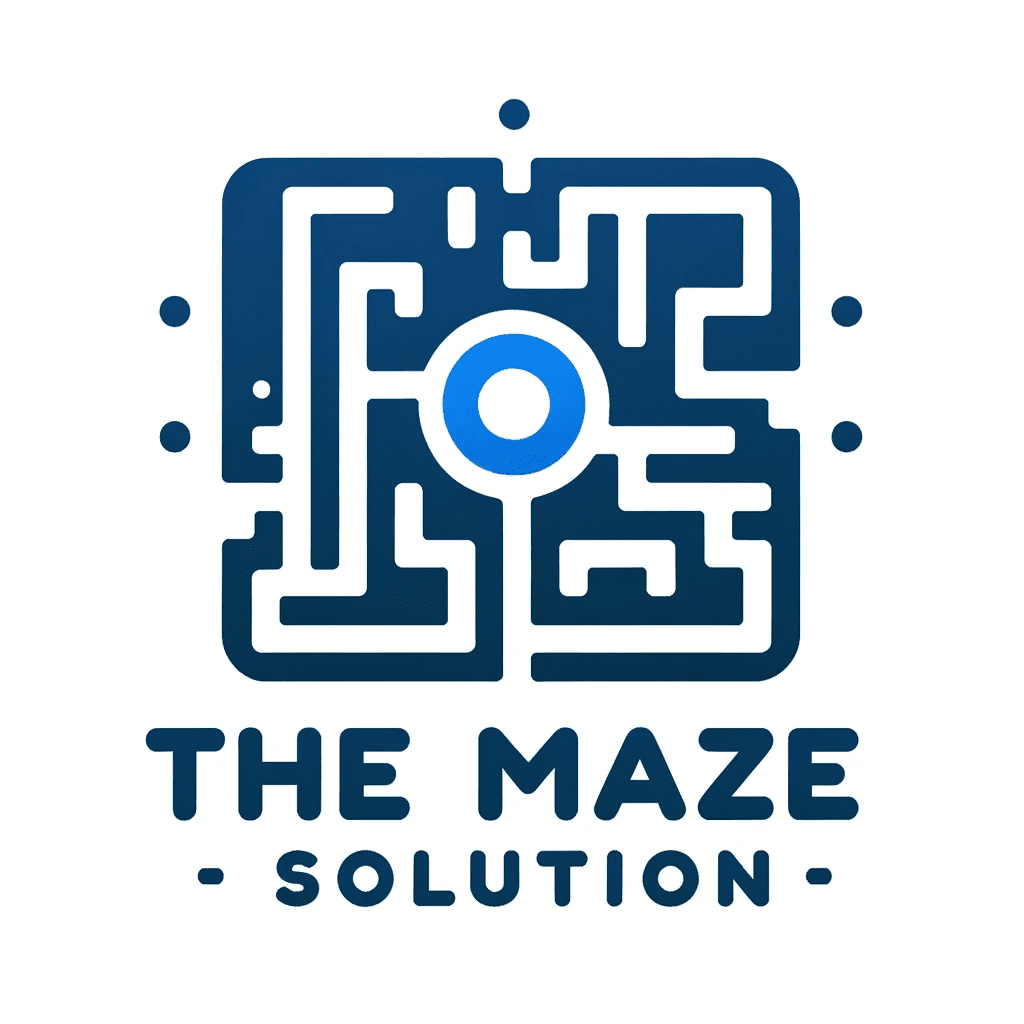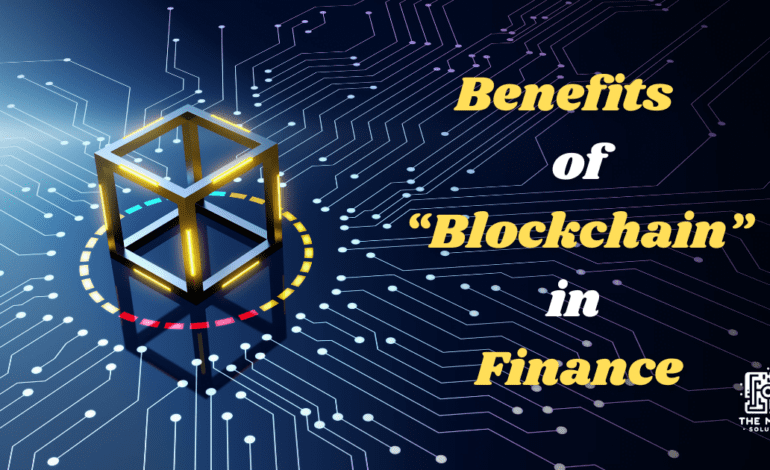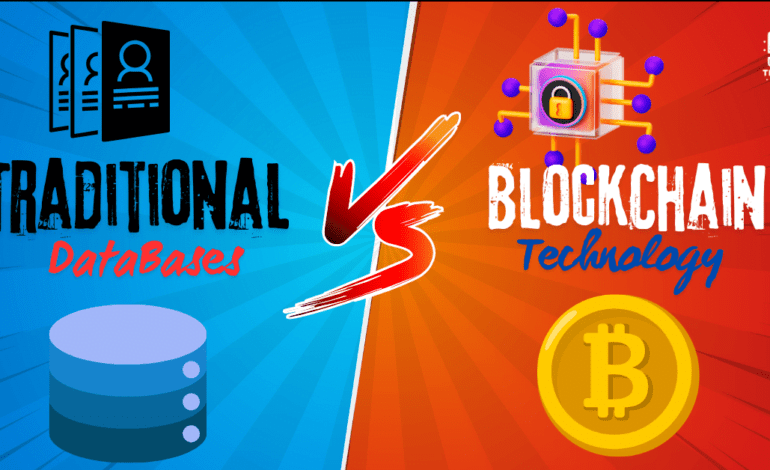Blockchain Applications in Healthcare: Benefits, and Future Prospects
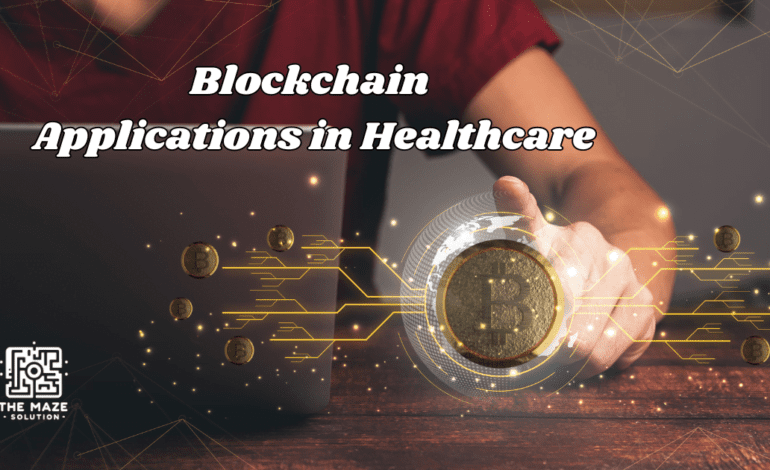
Introduction
In the digital age, technology is driving unprecedented transformations across various sectors. One such groundbreaking innovation is blockchain technology, which has already made significant waves in finance, supply chain management, and now, healthcare. But what makes blockchain so revolutionary, and how can it positively impact healthcare?
Blockchain technology is a decentralized digital ledger that records transactions across multiple computers in such a way that the registered transactions cannot be altered retroactively. This ensures transparency and security—two critical elements in any industry, particularly in healthcare. The focus of this blog is to explore the myriad benefits and promising future prospects of blockchain technology in the healthcare sector.
By the end of this article, healthcare professionals, students, and tech enthusiasts will have a deeper understanding of how blockchain can revolutionize medical practices, improve patient care, and streamline administrative processes.
Blockchain Applications in Healthcare
Blockchain technology functions as a secure, decentralized ledger that can transform several aspects of healthcare. Its applications range from improving transparency and traceability in drug supply chains to enhancing the security of patient data.
Improving Transparency and Traceability in Drug Supply Chains
One of the most critical applications of blockchain in healthcare is ensuring the authenticity and traceability of pharmaceuticals. Counterfeit drugs are a significant issue affecting patient safety and public health. With blockchain, every transaction in the drug supply chain can be recorded and verified, making it nearly impossible for counterfeit drugs to infiltrate the system.
Enhancing Security and Privacy of Patient Data
Data breaches in healthcare can have catastrophic consequences. Traditional centralized databases are vulnerable to hacking and unauthorized access. Blockchain’s decentralized nature, however, provides enhanced security and privacy for patient data. Each record is encrypted and linked to the previous one, making unauthorized alteration extremely difficult.
Facilitating Secure and Efficient Health Data Exchange
Interoperability between different healthcare providers is a major challenge. Blockchain can facilitate a secure and efficient exchange of health data. This ensures that patient records are accurate, up-to-date, and accessible to authorized personnel only, thereby improving the quality of care provided.
Blockchain in the Medical Industry
Numerous companies and initiatives are already implementing blockchain technology to improve various aspects of the medical industry. These implementations offer a glimpse into the future of healthcare.
Reducing Fraud and Errors in Medical Billing
Fraud and errors in medical billing are costly issues for both providers and patients. Blockchain technology can reduce these issues by providing a transparent and immutable record of all transactions. This ensures that billing is accurate and free from fraudulent activities.
Enhancing the Accuracy of Medical Records
Accurate medical records are crucial for effective patient care. Blockchain’s immutable ledger ensures that once data is recorded, it cannot be altered. This enhances the accuracy of medical records and reduces the risk of errors that could compromise patient safety.
Streamlining Administrative Processes
Administrative tasks in healthcare are often time-consuming and prone to errors. Blockchain can automate many of these processes through the use of smart contracts. These contracts execute automatically when predefined conditions are met, streamlining administrative workflows and reducing the burden on healthcare staff.
Blockchain for Health Services
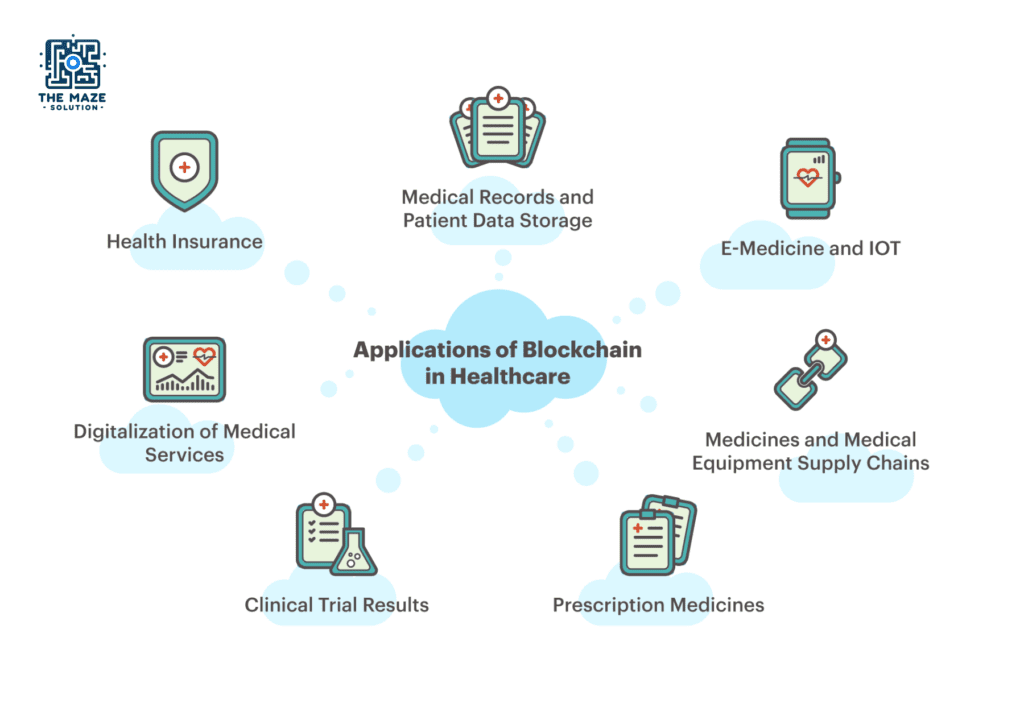
Blockchain technology can also enhance various health services, improving patient experiences and operational efficiency.
Improving Patient Identification and Authentication
Accurate patient identification is crucial for delivering appropriate care. Blockchain can provide a secure and immutable system for patient identification and authentication, reducing the risk of mistakes.
Streamlining Appointment Scheduling and Patient Management
Managing patient appointments and records can be cumbersome. Blockchain can streamline these processes by providing a unified, secure platform where all relevant information is easily accessible.
Enhancing Patient Engagement and Participation
Patient engagement is vital for effective healthcare. Blockchain can empower patients by giving them greater control over their health data. They can grant or revoke access to their records as needed, fostering a sense of ownership and participation in their healthcare.
Providing Patients with Better Control Over Their Health Data
Traditionally, healthcare providers have control over patient data, but blockchain can shift this balance. Patients can manage who has access to their records, ensuring their personal information is protected.
Facilitating Patient Consent Management and Data Sharing
Managing patient consent for data sharing is a complex task. Blockchain can simplify this process by recording consent on an immutable ledger, ensuring compliance with regulations and protecting patient privacy.
Blockchain Technology in Healthcare Systems
Integrating blockchain technology into healthcare systems presents both opportunities and challenges. Successful implementations showcase its potential.
Smart Contracts for Automating Healthcare Processes
Smart contracts are self-executing contracts with the terms directly written into code. In healthcare, they can automate various processes, from billing to supply chain management, reducing the need for intermediaries and speeding up operations.
Interoperability and Integration with Existing Health IT Systems
For blockchain to be effective, it must integrate seamlessly with existing healthcare IT systems. This integration ensures that blockchain can enhance current processes without causing disruption.
Addressing Challenges and Limitations
Despite its potential, blockchain faces challenges in healthcare. Issues like scalability, regulatory compliance, and data standardization must be addressed to fully realize its benefits.
Scalability Issues
Blockchain technology networks can become slow and inefficient as they scale. Solutions like sharding and off-chain transactions are being developed to address these issues and ensure blockchain can handle large volumes of data.
Regulatory and Compliance Concerns
Healthcare is a highly regulated industry, and blockchain implementations must comply with various laws and regulations. Ensuring compliance while leveraging blockchain’s benefits is a delicate balance that requires careful planning and execution.
Blockchain in Health Data Management
Effective health data management is crucial for delivering high-quality care. Blockchain can revolutionize how this data is stored, accessed, and utilized.
Secure and Decentralized Storage of Patient Records
Traditional centralized storage systems are vulnerable to breaches. Blockchain offers a decentralized alternative, where data is distributed across the network, reducing the risk of unauthorized access.
Ensuring Data Integrity and Immutability
Blockchain’s immutable ledger ensures that once data is recorded, it cannot be altered. This guarantees the integrity and reliability of patient records, which is essential for effective care.
Benefits for Healthcare Providers and Patients
Both providers and patients stand to benefit from blockchain. Faster access to accurate patient data can improve care delivery, while reduced administrative burdens lower costs.
Faster Access to Accurate Patient Data
With Blockchain technology, authorized personnel can quickly access up-to-date patient records, ensuring that care decisions are based on accurate information.
Reduced Administrative Burden and Costs
By automating administrative tasks and reducing the need for intermediaries, blockchain can lower operational costs and free up resources for patient care.
Benefits of Blockchain in Healthcare
The benefits of blockchain in healthcare are vast, from enhanced security to improved efficiency and transparency.
Enhanced Security and Privacy
Blockchain’s decentralized nature and encryption ensure that patient data is secure and private, reducing the risk of breaches.
Improved Efficiency and Reduced Costs
Automation and streamlined processes lead to greater efficiency and lower costs, benefiting both providers and patients.
Greater Transparency and Accountability
Blockchain provides a transparent record of all transactions, enhancing accountability and trust within the healthcare system.
Real-World Examples of Blockchain Benefits in Healthcare
Numerous case studies demonstrate the tangible benefits of blockchain. For instance, the MediLedger Project uses blockchain to ensure the authenticity of drugs in the supply chain, while Estonia’s eHealth Foundation leverages blockchain for secure health data management.
Future Prospects of Blockchain in Healthcare
Blockchain’s future in healthcare looks promising, with emerging trends and innovations poised to further transform the sector.
Emerging Trends and Innovations in Blockchain Technology
Technological advancements such as zero-knowledge proofs and decentralized autonomous organizations (DAOs) hold the potential to further enhance blockchain’s capabilities in healthcare.
Potential Future Applications in the Healthcare Sector
Future applications of blockchain could include personalized medicine and advanced data analytics, offering new ways to deliver care and optimize outcomes.
Personalized Medicine
By securely storing and sharing genetic data, blockchain can facilitate personalized medicine, where treatments are tailored to an individual’s genetic makeup. This technology ensures that sensitive genetic information is handled with the utmost security and privacy, allowing healthcare providers to develop customized treatment plans based on a patient’s unique genetic profile, leading to more effective and targeted therapies.
Advanced Data Analytics and AI Integration
Integrating blockchain with AI can unlock powerful data analytics capabilities, providing insights that drive better care and operational efficiency.
Predictions and Expert Opinions on the Future of Blockchain in Healthcare
Experts predict that blockchain will become a foundational technology in healthcare, driving innovation and improving patient outcomes. However, achieving this potential will require collaboration between stakeholders and continued investment in research and development.
Conclusion
Blockchain technology holds immense potential to transform healthcare, offering benefits such as enhanced security, improved efficiency, and greater transparency. Its applications range from drug supply chain management to patient data security, demonstrating its versatility and value.
While challenges remain, the future prospects of blockchain in healthcare are promising. By exploring and investing in blockchain technology, healthcare stakeholders can drive innovation and improve patient care.
For those interested in learning more, numerous resources are available that provide further insights into the applications and benefits of blockchain in healthcare.
